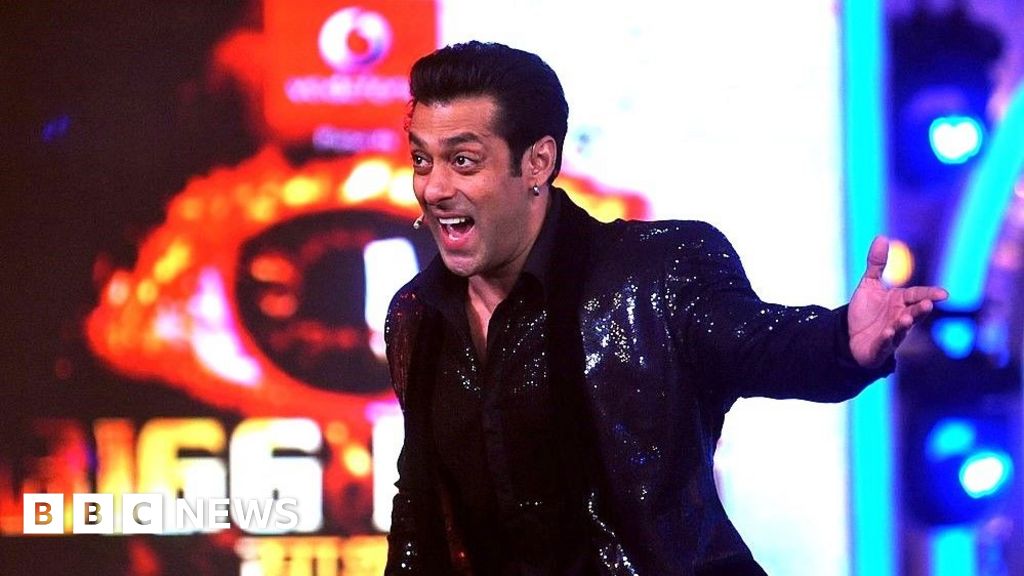Imagine binge-watching The Bear, Succession, Deadpool and reality show Bigg Boss all on one platform – an entertainment bonanza could be just around the corner for Indians if a blockbuster streaming merger goes through as expected.
The deal, which brings together the media assets of India’s largest conglomerate Reliance Industries and entertainment giant Walt Disney, has sparked both excitement and concerns over potential monopolistic dominance in the Indian entertainment and advertising industries.
The $8.5bn (£6.5bn) merger aims to create India’s largest entertainment company, potentially capturing 40% of the TV market, reaching 750 million viewers across 120 channels, and dominating the advertising sector.
This gives Disney a stronger foothold in the challenging Indian market while supporting Reliance’s expansion efforts. It also pits the new entertainment behemoth against popular rivals such as Netflix, Amazon Prime Video, Sony and 50-odd other streaming platforms.
Consider the reach of this new entertainment giant: Disney’s Star India operates more than 70 TV channels in eight languages, while Reliance’s Viacom18 runs 38 channels in eight languages. Both own major streaming platforms – Jio Cinema and Hotstar – and film studios.
Their influence is further amplified by owning the broadcasting rights to a significant number of India’s sports events, including the hugely popular Indian Premier League cricket tournament.
In a cricket-obsessed nation, this is a prime business position. The merged entity is estimated to control 75-80% of the Indian sports streaming market across both linear TV and digital platforms, according to Elara Capital, a global investment and advisory firm.
Their dominance in this sector, especially cricket, means that Reliance and Disney will command a substantial share of the overall advertisement market. It showcases “strong growth in an industry where sports is a key driver of viewership on both TV and digital platforms”, says Karan Taurani, an analyst at Elara Capital, who calls it a “large media juggernaut”.
Though the merger promises to offer consumers diverse content, critics wonder if it puts too much power in the hands of one player.
“The emergence of a giant in the market… with the next competitor struggling with market share in a single digit, would make any competition agency sit up and take notice,” says KK Sharma, who formerly headed the merger control division of the Competition Commission of India (CCI).
This is why, analysts say, India’s competition watchdog scrutinised the agreement before approving the deal with a caveat that makes it “subject to the compliance of voluntary modifications”.
The companies have not made these “voluntary modifications” public yet, but reports say that the two companies have pledged to not raise advertising rates excessively while streaming cricket matches.
The deal hinges on these assurances, Mr Sharma adds, because the CCI “retains its authority to even divide the enterprise – if the dominant enterprise becomes a threat to competition in the market”.
In an increasingly competitive but expanding Indian streaming market, both Disney and Reliance have a lot to gain from the deal, which allows them a chance to consolidate their pole position.
But experts warn that it may also mean a potential drop in the business earnings of smaller players.
“The Indian market values bundling and is price-sensitive. [Subscribing to] this combined entity can offer a comprehensive package including [access to] web series, movies, sports, original content, and a global catalogue,” says Mr Taurani.
And if the combined company can also leverage the large telecom subscriber base of Reliance Jio, other streaming companies may find it hard to raise prices, he adds.
The Reliance Group has a tried-and-tested business strategy that has allowed it to thrive in the price-sensitive Indian market: it offered cheap mobile data when it launched Jio in 2016, and its JioCinema streaming subscription is available for as little as 29 rupees ($0.35; $0.26) a month.
From this deal too, Reliance chairman Mukesh Ambani has promised “unparalleled content at affordable prices”.
“Other streaming platforms will be worried about the cost of content and the cost of programming. Will they be forced to drop prices?” says media and entertainment industry specialist Vanita Kohli-Khandekar. She says that the Reliance strategy of offering things at throwaway prices usually “destroys value” for competitors.
Streaming competitors might be easier to handle but the new company will also face stiff challenge from other rivals with deep pockets, such as Google, Meta and Amazon, who have been trying to expand in India.
These global tech giants have “played a pivotal role in expanding India’s video market, now estimated to be worth $8.8bn in revenue for content owners”, according to a report by research firm Media Partners Asia. In 2022-23, Google’s YouTube alone had an 88% share in India’s premium video-on-demand (VOD) market.
So the new Reliance-Disney behemoth will hope to dominate not just news, movies and sports, but also redirect digital advertising revenues from these big firms to its own coffers.
“Now, it’s an even fight,” says Ms Kohli-Khandekar. “Some 80% of digital revenues go to Google and Meta, so you have to have scale, and finally, you have a company that can take on some of the large global majors operating in India.”
But she warns that while the new entity might have scale and heft, it will also need to deliver quality with quantity – if, for instance, the streaming market becomes more dependent on views rather than subscriptions, “programming quality will be good only on one or two apps”, she says.
“That is something I would watch out for.”
